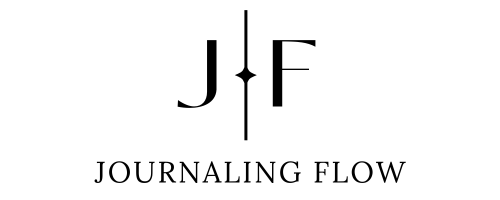
Self-reflection is a powerful practice that allows you to pause, assess your thoughts, emotions, and actions, and gain a deeper understanding of yourself. When paired with journaling, self-reflection becomes an even more effective tool for personal growth and emotional clarity. In this post, we’ll explore why self-reflection through journaling is important and provide actionable journaling exercises to help you start your reflective journey.
Why Self-Reflection is Important
In our busy day-to-day lives, it’s easy to get caught up in the rush without stopping to think about how we feel, why we make certain decisions, or what we really want. Self-reflection allows you to step back and evaluate your internal world, helping you:
- Gain clarity: Reflecting on your emotions and thoughts allows you to better understand your reactions and behaviours.
- Identify patterns: Journaling helps you track recurring themes or patterns in your life, whether they’re positive or negative.
- Enhance self-awareness: Self-reflection deepens your understanding of your values, goals, and desires, leading to more intentional decision-making.
- Foster personal growth: When you reflect on both your successes and challenges, you open the door for continuous self-improvement.
Techniques for Self-Reflection Through Journaling
Here are several journaling techniques you can use to guide your self-reflection practice:
1. Stream-of-Consciousness Writing
This technique involves writing whatever comes to mind without worrying about structure, grammar, or coherence. The goal is to let your thoughts flow freely, allowing your subconscious mind to reveal deeper feelings and insights. It’s a great way to release pent-up emotions and gain clarity on unresolved thoughts.
Exercise: Set a timer for 10 minutes and write continuously without stopping. Don’t censor yourself—just write whatever comes to mind, even if it feels random. Afterwards, review what you’ve written and identify any patterns or surprising realisations.
2. Prompt-Based Reflection
Using prompts is an excellent way to direct your focus and encourage deeper thinking. Prompts can range from questions about your current emotional state to broader inquiries about your life goals. They help guide your reflections, especially if you’re unsure where to start.
Exercise: Use prompts like:
- “What did I learn about myself today?”
- “How do I feel about where I am in life right now?”
- “What is one challenge I’m currently facing, and what can I learn from it?”
Answer each prompt in detail, exploring your feelings and thoughts with curiosity.
3. Gratitude Journaling with Reflection
Gratitude journaling helps you focus on the positive aspects of your life, but pairing it with self-reflection takes it a step further. Reflecting on the things you’re grateful for can reveal what truly matters to you and help you align your life with your core values.
Exercise: Each day, write down three things you’re grateful for. Afterwards, reflect on why those things are important to you. For example, if you’re grateful for a supportive friend, consider how that relationship impacts your well-being and what you can do to nurture it further.
4. Monthly Reflections
Regular, structured reflection can help you track your personal growth over time. Set aside time at the end of each month to review your journal entries, reflect on your accomplishments, challenges, and areas of growth.
Exercise: At the end of each month, write about:
- What were your biggest achievements this month?
- What challenges did you face, and how did you handle them?
- How have your emotions or priorities changed over the last 30 days?
This type of journaling provides valuable insights into how you’re evolving and helps you course-correct if necessary.
5. Future-Self Journaling
This technique involves reflecting on who you want to become and aligning your current actions with that future vision. By visualising your ideal future self, you set the stage for personal development and transformation.
Exercise: Write a letter from the perspective of your future self, imagining what your life looks like 5 or 10 years from now. Reflect on the steps you took to reach this point, what habits you developed, and how your mindset evolved. This forward-looking reflection can clarify your long-term goals and inspire action in the present.
Benefits of Self-Reflection Through Journaling
Here’s why incorporating self-reflection into your journaling practice can be transformative:
- Emotional clarity: Journaling allows you to explore and make sense of your emotions, helping you understand why you feel a certain way and how to manage your feelings more effectively.
- Improved decision-making: Reflecting on past decisions—both good and bad—helps you learn from your experiences, making future choices more intentional and aligned with your values.
- Enhanced self-awareness: The more you reflect on your thoughts, actions, and patterns, the better you understand yourself. This increased self-awareness leads to more authentic living and meaningful relationships.
- Stress reduction: Writing about your thoughts and emotions serves as a release, helping to alleviate stress and anxiety. It provides an outlet for difficult emotions, allowing you to process and move through them in a healthy way.
Conclusion: Embrace Self-Reflection to Grow and Evolve
Self-reflection through journaling is one of the most effective ways to build self-awareness, foster personal growth, and gain clarity in your life. By consistently practising reflective journaling techniques like stream-of-consciousness writing, prompt-based reflections, or future-self journaling, you’ll unlock valuable insights about yourself and your journey.
Want more journaling inspiration?
Get exclusive prompts, techniques, and insights straight to your inbox.
Join the Journaling Flow newsletter today!



April 1, 2025
[…] is more than just writing—it’s a tool for intentional living. By setting priorities, reflecting on progress, and staying organised, you can use journaling to boost productivity both at work and at home. […]
April 1, 2025
[…] for: Self-reflection and personal […]
April 1, 2025
[…] Build self-reflection skills: Daily journaling creates space for introspection and growth. […]
April 1, 2025
[…] naturally slows you down, encouraging mindfulness and deeper reflection. When you write by hand, you are less likely to rush through your thoughts. The slower pace […]